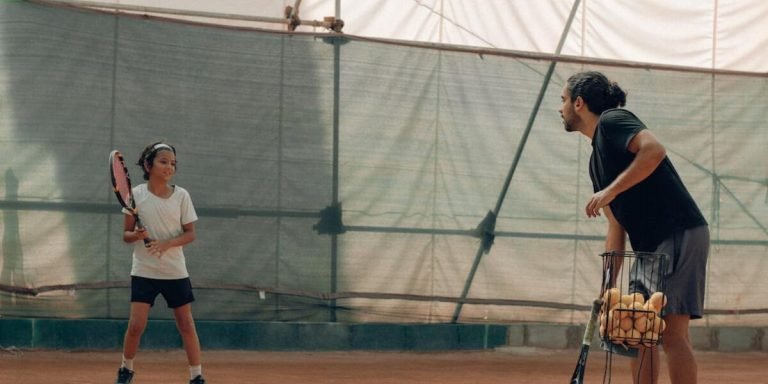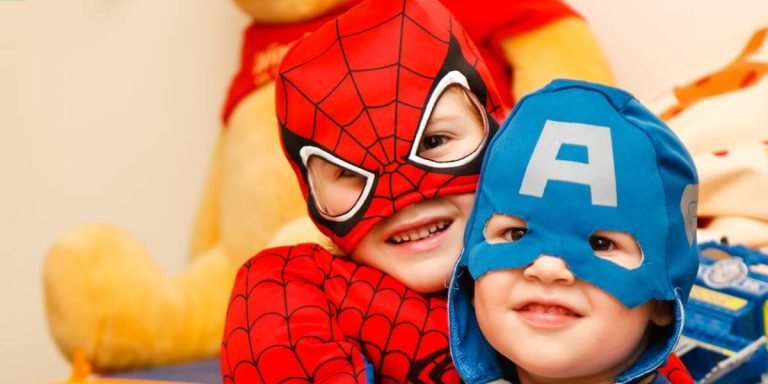Educational Insights: Shaping the Future of Childhood Learning
The educational landscape is currently witnessing a revolutionary change with the rise of “educational insights” focused on experiential and activity-based learning. The paradigm shift from traditional lecture-based teaching methods to ones that engage children more holistically has proven to be central in promoting independent thinking, creativity, and problem-solving skills among young learners.
Experiential or activity-based learning goes beyond textbooks, providing youngsters an opportunity to apply what they learn practically—be it through lab experiments, field trips, role play or group projects. It creates an environment where students are not passive receptors of knowledge but active participants shaping their own education journey. This blog post further explores these innovative educational insights shaping the future of childhood learning.
Did you know?
Did you know that children, who have their first educational experience in nature-oriented outdoor environments, develop superior problem-solving skills compared to those educated purely indoors? This fact reinforces the importance of reshaping our perception towards early childhood learning for a brighter future.
Understanding Experiential Learning: Gaining Educational Insights Through Action
Experiential learning, at its core, is about gaining educational insights through action. The realm of education has seen a revolutionary shift from traditional rote memorization towards this hands-on approach that recognizes the significance of real-world context in teaching children crucial life skills and concepts.
The essence of experiential learning lies not merely in acquiring knowledge but developing an understanding by applying theoretical principles to practical situations. As educators or parents guiding our youngsters’ academic journey, we can leverage this effective pedagogical method to facilitate profound comprehension across various subjects be it science, mathematics or humanities.
Moreover, experiential learning helps us sow the seeds for lifelong curiosity and critical thinking among learners – indispensable attributes they would need as adults navigating their way around a fast-paced world marked with uncertainties. By immersing them into authentic problem-solving scenarios right from their formative years on wards allows these young minds imbibe meaningful educational insights intrinsically intertwined with real-life experiences.
The Core Principles of Experiential Learning in Modern Education
Experiential learning has become a critical tool in modern education practice, largely due to the significant impact it makes on students. This pedagogical approach emphasizes active participation and hands-on experiences, providing educational insights that are not often encountered through traditional lecture-based methodologies.
The first principle of experiential learning is engagement. Rather than being passive recipients of information, students actively participate in their own education process. They employ problem-solving skills and creativity by immersing themselves directly into tasks or situations associated with what they’re studying.
Next comes reflection – an essential aspect integral for growth and understanding. Reflection allows children to analyze actions taken during their experience further deepening comprehension while encouraging mindfulness about choices made impacting outcomes achieved. It can also aid them greatly when dealing with similar future circumstances.
How Activity-Based Strategies Enhance Cognitive Development
In recent years, experiential learning or activity-based strategies have gained prominence in the sphere of childhood education. Research illuminates a clear link between such hands-on approaches and enhanced cognitive development in children – truly empowering educational insights.
Firstly, it’s crucial to understand that each child has unique ways they absorb information. Most often, traditional chalk-and-talk methods may not cater to all learners’ needs, resulting in lower comprehension levels. Activity-based strategies bridge this gap effectively by placing emphasis on ‘doing’, thereby providing an improved grasp over concepts.
For instance, teaching mathematics using physical objects fosters numerical understanding far better than rote memorization techniques alone do. This can help bring abstract numbers into tangible reality for young minds who might struggle with grasping theoretical ideas otherwise.
Children retain more knowledge when they actively partake than merely listening passively because activity-oriented lessons spark curiosity-led inquiry among kids whose attention spans are typically shorter.
Moreover, these strategic learning mediums encourage creativity and problem-solving skills since activities usually involve tasks requiring out-of-the-box thinking processes along with practicality tests too- another proof why 2023 classrooms exhibit powered growth through active student participation!
Implementing Experiential Learning Techniques for Deeper Educational Insights
Embracing experiential learning techniques presents a pivotal shift in the realm of childhood education. As we navigate 2023, it’s increasingly evident that traditional rote learning methods are becoming less effective compared to more interactive and immersive approaches such as activity-based or experiential learning. By implementing these techniques, educators provide students with an enriched educational environment facilitating deeper insights into complex concepts.
Experiential Learning encourages learners not just to understand but also actively participate in the process of knowledge acquisition. It facilitates critical thinking and problem-solving skills which open up new avenues for children’s intellectual growth. The interaction between subject matter and student becomes highly dynamic when lessons extend beyond textbooks leading to profound educational insights.
Activity based-learning provides tangible contexts making abstract ideas more relatable for young minds by introducing real-life scenarios within their curriculum structure This empowers them with an understanding that extends beyond theoretical knowledge enabling realistic application on various life challenges – academics, emotional intelligence or societal interactions alike.
The transformative potential of these methodologies is vast; they enable a learner-centered approach where curiosity leads comprehension under guidance from expert educators—the crux being ‘learning by doing’. Unleashing greater strides towards achieving comprehensive developmental milestones among youngsters augments parental trust levels helping institutions garner positive word-of-mouth publicity thereby solidifying their stand over competitors merely offering conventional pedagogue styles considering our rapidly evolving world landscapes.
Interactive Methods to Foster Critical Thinking and Problem-Solving Skills
Experiential learning, often known as activity-based learning, has been gaining significant relevance in recent years. It’s a technique that leverages real-life situations and experiences to enable better comprehension of various concepts. One area where it particularly shines is fostering critical thinking and problem-solving skills among youngsters.
1. **Simulations**: Simulating an event or circumstance allows learners to experience what it would be like practically without facing any actual risk associated with such circumstances. By taking on roles within these simulations, students enhance their ability to analyze scenarios critically and find innovative ways out.
2.Placing students in hypothetical scenarios can go a long way toward enhancing their analytical abilities and improving decision-making capabilities.
3.Another effective interactive method involves incorporating complex puzzles throughout course content.
4.Role-playing activities allow children not only understand different perspectives but also develop empathy – significantly impacting how they approach problems later on.
5.Encouraging group discussions after every exercise improves collective reasoning power besides nurturing interpersonal communication talents — all key ingredients required for honing critical-thinking prowess.
6.Even basic games involving strategy can cultivate essential problem-solving expertise among kids while ensuring they enjoy the process thoroughly — thus striking at two birds with one stone!
7.Lastly, providing timely feedback plays an instrumental role here by allowing them to improve upon areas where mistakes were made initially while reinforcing positive actions simultaneously!
Leveraging Technology in Experiential Settings to Boost Engagement
Technology, undoubtedly, has accelerated the evolution of educational practices globally. Its integration into classroom settings can significantly enhance experiential learning and create more opportunities for comprehensive understanding.
One effective way to integrate technology in an experiential setting is through interactive virtual reality (VR) experiences. VR provides students a dynamic platform where they can observe concepts bearing real-world applications without leaving their classrooms. The ‘walk-through’ anatomy lessons are great examples of how immersive VR gives unparalleled educational insights that textbooks rarely provide.
Besides VR, cloud-based learning tools like Google Classroom and Edmodo also offer innovative ways to learn while promoting student engagement with collaborative projects or online assignments tied with real-life contexts.
Today’s children naturally gravitate towards digital devices making them tech-savvy from very early ages; this fact alone makes technological adoption in education both inevitable yet promising step forward.
Measuring the Impact of Experiential Learning on Student Outcomes
Experiential learning, commonly referred to as “Learning by Doing,” is a teaching methodology that enables children to connect theory with practice. In today’s dynamic educational landscape, it has gained significant traction for the plethora of benefits it offers towards enhancing student outcomes. One such benefit is perhaps its ability to cater to diverse learner styles – auditory, visual or kinesthetic learners.
Measuring the impact of experiential learning on students’ academic performance does not merely revolve around grades but extends beyond into cognitive skills and personal development aspects. A study in 2023 revealed that students who are involved actively in their education through practical experiences showcased improved problem-solving abilities and critical thinking skills compared with others schooled traditionally—a testament to why more educators are embracing this approach.
Furthermore, traditional methods often miss capturing certain hidden talents which can only be identified when applying theories practically. Experiential learning provides an avenue for these unique insights by fostering creativity among youngsters amidst real-world situations—an attribute highly sought after in our rapidly advancing society.
Quantitative Metrics to Assess the Efficacy of Activity-Based Approaches
To gauge the success of activity-based learning methods, it is crucial to rely upon concrete quantitative metrics. These can provide educational insights into student outcomes and demonstrate how experiential learning strategies are shaping our children’s academic progress.
Firstly, a direct measure that reflects students’ understanding is their test scores. As education draws heavily from practical application these days, standard tests have also evolved in structure. They now include questions aimed at evaluating a child’s comprehension on an experiential level rather than mere rote memorization skills.
Another critical metric includes project completions and performances related to the real-world problem-solving tasks embedded within the curriculum. Watching closely for improvements over time can give us insight about whether this hands-on teaching method leads to tangible advancement in knowledge application abilities or not.
Case Studies: Success Stories of Active Learning Models in Diverse Disciplines
In the realm of education, case studies often provide valuable insight into successful methodologies like experiential learning or activity-based learning. These narratives can illuminate patterns and principles that may not be immediately apparent in theoretical discussions. Let’s delve into some success stories from varied disciplines applying active learning models.
Firstly, we find an impressive instance in the field of biology where a middle school teacher replaced regular lectures with hands-on activities focusing on plant growth. Students were involved in planting seeds, observing their development over time while noting observations and drawing conclusions about factors affecting this process. The impact was significant – students displayed deeper understanding and demonstrated better problem-solving skills compared to prior years’ outcomes.
Secondly is a noteworthy application within History classes at a high-school level involving real-world role-play exercises based on historical events offering educational insights far beyond textbook materials alone. Through mimicking scenarios such as Constitutional Congress debates or recreating Renaissance artist guilds, pupils gained rich perspective about those periods leading to substantially improved engagement levels.
Thirdly are Mathematics courses at tertiary institutions witnessing tremendous shifts through incorporating experiential methods for explaining complex concepts using day-to-day examples making abstract ideas more relatable resulting milestone improvements regarding student comprehension rates.
Conclusion
As we charter into unexplored territories of future learning, let’s remember that the ultimate compass guiding us should be educational insights. These are not just mere stepping stones but powerful catalysts capable of shaping our children’s paths to cognitive growth, emotional resilience and creative development.
Our journey here may end, but there is an ocean of information waiting for you on our website. Dive in at your leisure! You will find a treasure trove full of expert advice on childhood education and support resources for parents and educators alike — designed with love to make this adventure worthwhile.
Keep exploring because every child deserves the best version of their unique potential!







